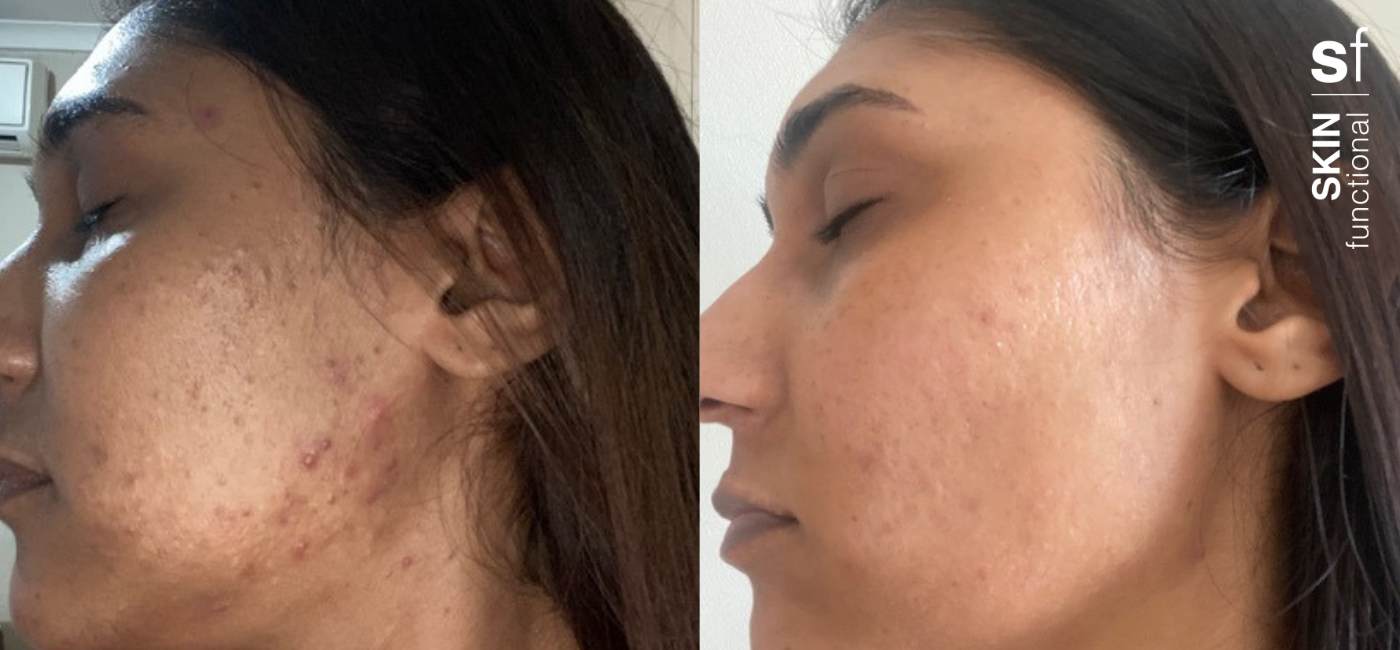
FREE SHIPPING FOR ORDERS OVER R500 WITHIN SOUTH AFRICA
Free shipping for orders over R500
FREE SHIPPING FOR ORDERS OVER R500 WITHIN SOUTH AFRICA
Free shipping for orders over R500

As with all skin types and concerns, there is a lot of skincare advice floating around on the internet that just doesn’t work, and some myths and misconceptions can even cause more harm to your skin. We’re here to equip you with only honourable skintelligence™ to set the record straight with pure facts on five common myths about dry skin that you should stop believing.
#1. Dry skin means it’s dehydrated
False. Although they’re often confused as the same thing, dehydrated skin and dry skin are actually different skin concerns, however very often they can be linked. Dehydrated skin is a temporary condition that occurs when there’s a lack of Hyaluronic Acid production and Natural Moisturising Factors (NMF) in the skin. Dehydrated skin can affect all skin types (even oily skintypes). Dry skin, on the other hand, is a skin type that lacks natural lipids in the stratum corneum (the skin’s outer layer). Dry skin needs a healthy balance of lipids for proper barrier functioning to help the skin retain moisture and keep it feeling soft and smooth. When the skin doesn’t produce enough lipids, it loses its ability to lock in moisture, resulting in dry skin with a scaly appearance, flakes, redness, itchiness or irritation.
A great way to tell if your skin is dehydrated is with the pinch test:
#2. Exfoliation is a big no-no
False. Exfoliating with a harsh scrub can make dryness worse as physical exfoliation can lead to over exfoliation and uneven exfoliation. This can damage the protective barrier of the skin, but skipping exfoliation in its entirety can stop your skincare from working effectively. Your dead skin cells need to be sloughed off with a gentle exfoliator, so that other products can be absorbed more easily and provide long-lasting hydration. Exfoliating frequently with a light chemical exfoliation improves overall barrier functioning and Hyaluronic Acid production.
#3. You need a heavy moisturiser
False. When dealing with dry skin, our first instinct is often to slather on the richest, heaviest moisturiser you can find. Stop right there! Not only do rich creams feel unpleasant on your skin, they can also cause congestion and dreaded breakouts from clogging all your pores. Avoid heavy ingredients and artificial substances and opt for moisturisers that have a blend of the right ingredients such as Ceramides, Squalane, Hyaluronic Acid, hydrating tonics.
#4. You need to drink more water
False. Drinking 8 glasses of water every day will certainly help maintain your skin’s essential function amongst many other health benefits, but it makes the biggest difference for dehydrated skin, not dry skin, which loses its moisture because its protective barrier isn’t functioning properly. Dry skin is typically caused by external factors such as wind, cold air, hot water and moisture-stripping products, so it’s best to treat the problem from the outside with nourishing serums and skincare rather than from the inside with liquids.
#5. Dry skin only happens in winter or cold months
False. While it’s true that many of us battle with dry skin during the cold winter months, dry skin types still have to be protected and hydrated all year round, even in the rainy or humid seasons.
We will give you the right amount of love!
From expert advice, specials and new products, be the first to know.
No spamming, we promise!






Click on the button below and choose 2 free gifts.
Hurry, while stocks last!